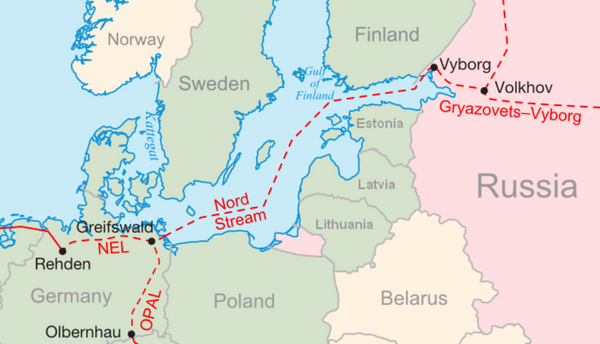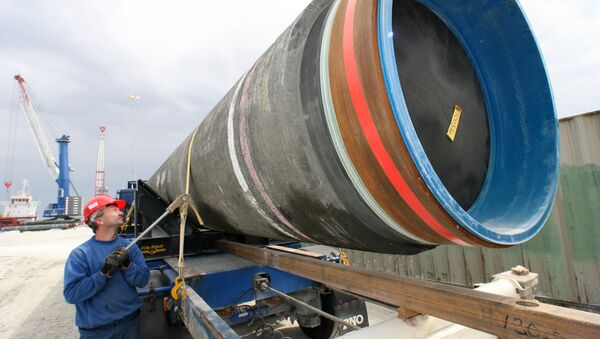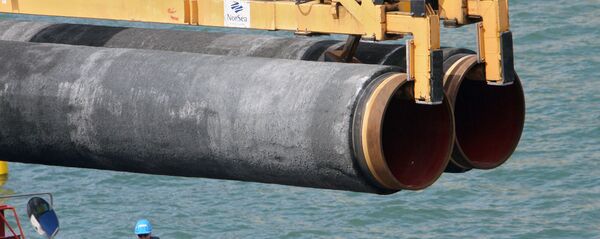Nord Stream 2, the ambitious project aimed at doubling Nord Stream AG's capacity to pump tens of billions of cubic meters-worth of natural gas from Russia to Germany across the floor of the Baltic Sea, is also expected to cut the countries' dependence on transit countries including Ukraine, Poland and the Baltic states.

Gazprom and partner companies had signed a shareholders agreement on Nord Stream 2 back in September 2015. The prospective shareholders include Gazprom itself, with a 50% share, and Western European energy companies including Germany's Uniper SE and BASF/Wintershall (with a 10% stake each), the Anglo-Dutch firm Royal Dutch Shell (10%), Austria's OMV AG (10%) and France's Engie (10%).
The new pipeline may be completed by 2019.
For several Eastern European countries, the loss of their status as transit countries signifies significant financial losses, along with geopolitical implications. As a result, earlier this year, nine heads of government from countries including Poland, the Czech Republic, Slovakia, Hungary, Romania, Croatia and the Baltic states have sent the European Commission a letter protesting the prospective pipeline's construction.
Despite objections, the German government has pushed ahead every step of the way, which supporters of the project pointing to the need to increase Europe's energy security. In April, commenting on Berlin's position, Die Welt wrote that the project was a very clear demonstration of Germany's ability to throw its weight around within the European Union to get what it wants.
Commenting on these requirements in an article for PolitRussia, journalist and political analyst Ivan Shatov recalled that in and of themselves, these requirements were nothing new. "Germany had always said that the pipeline does not fall under the Third Energy Package," (which stipulates that the company that produces gas cannot operate the pipeline), and that "it doesn't conflict with EU law." Moreover, he added, "there was never any discussion on the complete cessation of gas transit through Ukraine – some minimum amount would continue to be delivered in any case."
With regard to the project's future prospects, Shatov suggested that German interest was its most important guarantee. Essentially, "the project's implementation will turn Germany into a world-class energy hub in the market for European gas." As a result, the analyst noted, countries like Slovakia, Poland and Hungary "can always voice their objections, but following Brexit, no one will be able to prevent Germany from enhancing its status in the European gas market."
Ultimately, the analyst suggested, it will be very interesting to observe how Washington responds. "As is well-known, the United States has long tried to reduce Europe's dependence on Russian energy, with the UK serving as a lobbyist for US interests on the continent. In this context, Brexit may become a much more important blow to US interests than the shock caused on Wall Street. For Moscow however, such a turn of events can only be seen as beneficial."


